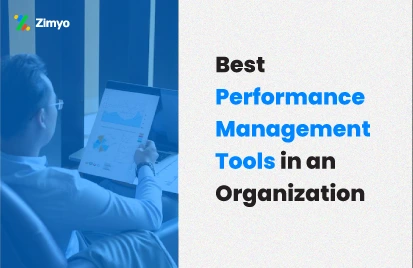
Performance Management
Bell Curve: Definition, Characteristics, and Its Role in Performance Appraisal
The bell curve is one of the most recognized and
Home » Importance of employee feedback

Employee feedback is an essential aspect of the growth and development of any organization. It includes the information provided by the employees regarding their job, Work environment, and overall experience in the company. In reference to the fast-paced and hi-tech environment of modern organizations, employee feedback plays a vital role in helping the company understand the needs and requirements of its workforce and make necessary adjustments to improve employee engagement, retention, and productivity.
This feedback is used to improve employee’s performance at work. It should be specific, actionable, and focused on behaviors rather than personal characteristics.
This feedback is used to recognize and appraise good work. It can be done through verbal praise, written notes, or public recognition.
This type of feedback is gathered from various sources, including supervisors, peers, and subordinates. It provides a comprehensive view of an employee’s performance and can help identify areas for improvement.
This feedback is given in the moment and can be used to correct behavior or provide immediate praise.
This feedback type focuses on an employee’s long-term growth and development. It may include recommendations for training or professional development opportunities.
=>By soliciting and acting upon employee feedback, companies can create a positive work environment that fosters employee engagement, retention, and productivity

Employee feedback is an effective way to engage employees and make them feel valued. When employees are asked for their opinions and suggestions, it makes them feel that their opinions matter and that the company cares about their well-being. This, in turn, increases their engagement and commitment to the company.
It is an excellent tool for identifying areas of improvement in the organization. Through employee feedback software, HR tech companies can gain insights into what is working and what is not. They can then use this information to make necessary changes and improve processes, policies, and procedures.
When employees feel that their voices are heard, and their feedback is acted upon, it boosts their morale and motivation. This positive reinforcement can lead to increased job satisfaction and employee retention.
Employee feedback can help identify obstacles that may be hindering productivity. By addressing these issues, HR tech companies can create a more conducive work environment and boost employee productivity.
Regular feedback from employees encourages a culture of continuous improvement. This can lead to innovation, increased efficiency, and better customer satisfaction.
When employees feel that their voices are heard, and their opinions matter, they are more likely to stay with the organization. This can save the company time and money on recruiting and training new employees.
The frequency of employee feedback processes varies depending on the organizational goals and objectives. However, it is recommended to conduct regular feedback sessions at least once every quarter or twice a year.
It allows employees to provide
– Thoughts
– Opinions on events and projects
– Innovation
This helps managers to address any issue promptly.
The frequency should be decided wisely, as the organizational resources and time should not go into vain. It’s recommended that fewer sessions that are well planned and executed than to conduct frequent sessions that are disorganized or fail to produce meaningful insights.
HR tech companies can conduct surveys to gather employee feedback on various aspects of the organization. For example, they can conduct surveys on employee satisfaction, company culture, performance management, and employee benefits.
HR tech companies can schedule one-on-one meetings with employees to discuss their feedback and suggestions. These meetings can help identify specific issues that employees may be facing and address them in a personalized manner.
An open-door policy is an effective way to encourage employees to share their feedback. HR tech companies can create an environment where employees feel comfortable approaching their managers and HR representatives with their concerns and suggestions.
HR tech companies can use feedback tools such as pulse surveys, suggestion boxes, and feedback forms to gather employee feedback. These tools can be easily accessible and used anonymously, allowing employees to share their feedback without fearing repercussions

Employee feedback can play an essential role in the performance appraisal process in the following ways:
It ensures that all aspects of employee performance are considered and evaluated.
It helps them know more about their strengths and weaknesses, which in turn helps them improve their performance.
Feedback from employees can help managers identify accurate capabilities so that they can set goals accordingly.
Employee feedback can be used as a basis for identifying training and development needs for employees. This help employee acquire the necessary skills which accomplish the need for performance management.
There are a number of softwares that are being used for facilitating the purpose.
Employee feedback software of Zimyo creates greater value for Employees. Promotes a culture of continuous improvement through positive feedback and processes rather than delaying implementation.
They ensure that employees perform well with enthusiasm for positive feedback, not just from managers but everyone around them. From employee engagement to customer service, get the 360-degree insight of your people and their skills with employee feedback software.
Ensure Real-Time Employee Development with 24/7 Feedback. Use Zimyo’s employee feedback software to simultaneously create a culture of continuous feedback and effective performance feedback. Focus on fairness and streamline the entire feedback process.
Improve team relationships and increase efficiency
Reviewing performance, removing obstacles, discussing problem plans, etc. Hold regular meetings with employees. The opportunity to get to know your employees on a personal level makes them feel valued.
Triple your company’s overall employee satisfaction index with surveys that measure employee motivation, performance, and the effectiveness of human resources programs. Reports can help project managers and team leaders identify strengths and weaknesses in the project team and provide valuable advice.
After gathering employee feedback through software tools, it is crucial to analyze the results and draw conclusions to improve employee satisfaction, engagement, and productivity.
Overall, gathering and acting on feedback is an integral part of creating a positive and productive work environment, and utilizing software tools can make this process more efficient and effective.
Meet our fantastic editorial team, tirelessly crafting high-quality content. With a passion for HR and a commitment to excellence, they ensure you stay informed and empowered. Our HR content providers specialize in delivering expert insights and industry trends. And don't forget, we offer top-notch HR & Payroll Software to streamline your operations. Stay connected for valuable HR knowledge!

The bell curve is one of the most recognized and

Have you ever wondered how companies evaluate the performance of

As organisations expand, managing and improving employee performance becomes essential

Why Modern Workplaces Need Advanced Performance Management Tools In today’s